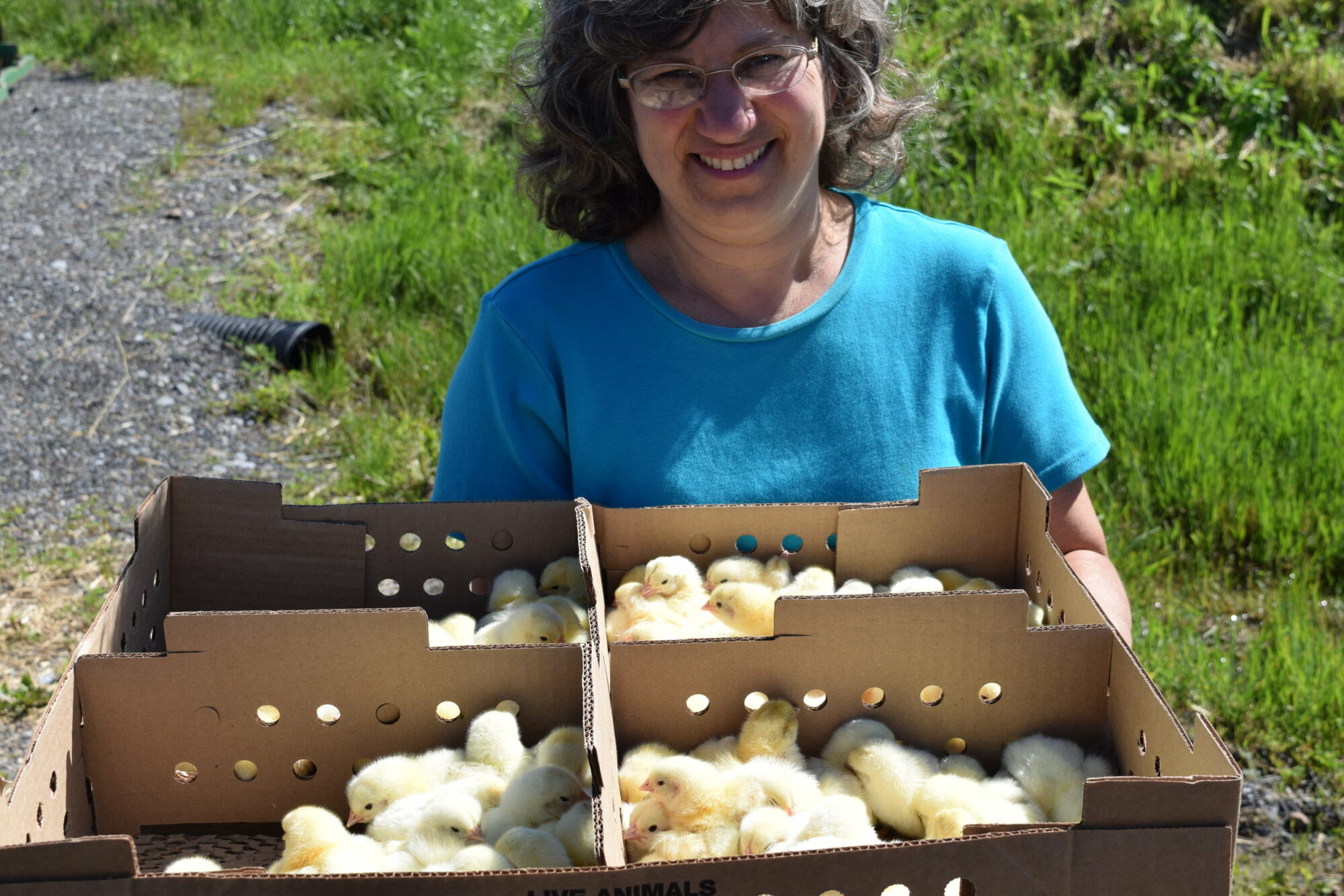For the May issue of Mohawk Valley Living, I wrote about the many support businesses that farmers rely upon in their day-to-day operations. There are so many things farmers need…be it parts or seed, or custom work they hire someone else to do. The highly specialized nature of farming in our modern era means farmers simply can’t do everything—or at least it doesn’t always make economic sense to do so. For example, some friends of ours hire a third party to make all their hay for them; others we know don’t raise their own replacement heifers, preferring to buy young stock from trusted sources. In both of these examples, these activities—although extremely important to running the farm—are not “core activities.” In other words, the farmers in these cases have identified an area of their businesses that is best outsourced to either another farmer or specialized company, so they may concentrate on what they do best. Sounds familiar, doesn’t it?
We buy day-old chicks from a local hatchery, rather than raising our own. Our “core activity” is raising meat chickens to slaughter weight and then processing them on farm for sale to restaurants and individuals. This means our focus is on raising healthy chickens with steady growth, managing our processing schedule, adhering to high food-safety standards, and selling and distributing the end product. There is no room for managing what would amount to an entirely different business: that of hatching the chicks!
When our daughters were in Kindergarten classes at West Canada Valley, they incubated eggs as a class project. It was fun and educational, and no one was terribly disappointed when only a small percentage (read: none) actually produced a living, peeping chick. As it turns out, there is a great amount of care required to get those little buggers to develop! It takes 21 days for a fertilized egg to mature into a chick and hatch. Fertilized eggs need to be kept at a constant 99.5-101.5° F, and turned several times a day. Humidity should be 45-50%, increasing towards the hatch date. Finally, great care must be taken to ensure bacteria do not enter the pores of the shell to compromise the developing chick—so their environment must be kept sanitary and hands must be washed before handling the eggs. All of these factors are vital to achieving the highest hatch rate and healthiest chicks possible…rather important hurdles when one is hatching eggs for a living!
Enter our local hatchery, the Northeast Pastured Poultry Association (NEPPA). Ken and Jill Gies, the owners of NEPPA, have been supplying us with day-old chicks for about 10 years. Quite frankly, we could not do what we do without them!
The story of NEPPA started almost 20 years ago. A number of local chicken producers banded together in an effort to make the butchering process easier and more affordable by building a mobile processing unit. (Equipment and facilities can be fairly expensive, oftentimes too much for a small-scale grower.) The group also proved to be a knowledgeable source of chicken-raising advice. Eventually, the need for a local hatchery was identified as a critical barrier for local producers. As active members of NEPPA, Ken and Jill were asked to manage that hatchery, eventually becoming its proud owners. They have since grown it into an expanding business, shipping meat bird chicks, layer pullets, even turkey poults as far as 200 miles away—throughout the year. Ken and Jill keep a lot of us farmers very well stocked with healthy, hearty birds!
As an added benefit, NEPPA hatchery is close by on the outskirts of Fort Plain. The short drive means we are able to pick up our chicks the day they are hatched. Large or small, the vast majority of chicken producers in this country receive their day-old chicks via some form of shipment. It may sound crazy, but the tiny, peeping fluffballs are ideally suited for surviving 24 hours before needing food and water. Before hatching, the chick takes in the remainder of the yolk, providing it enough sustenance to survive for at least a day or so. But we like picking up at NEPPA for two reasons: First, our chicks won’t have to experience even the slight stresses of shipping. Secondly, we get to visit with Ken, Jill, and sometimes their grown children. All too often, business transactions are impersonal and we don’t get to know the people behind the goods and services they provide. Such a shame! We relish the opportunity to connect with the Gies family, and learn to appreciate the value of what they do.
Our business relies upon NEPPA for a steady supply of healthy animals, to be sure. But the amount and degree of detail that goes on behind the scenes—finding the best sources for eggs, identifying best genetics for raising pastured poultry in our area, and continually challenging themselves to provide the highest quality—all add up to one less BIG thing I don’t have to worry about!
